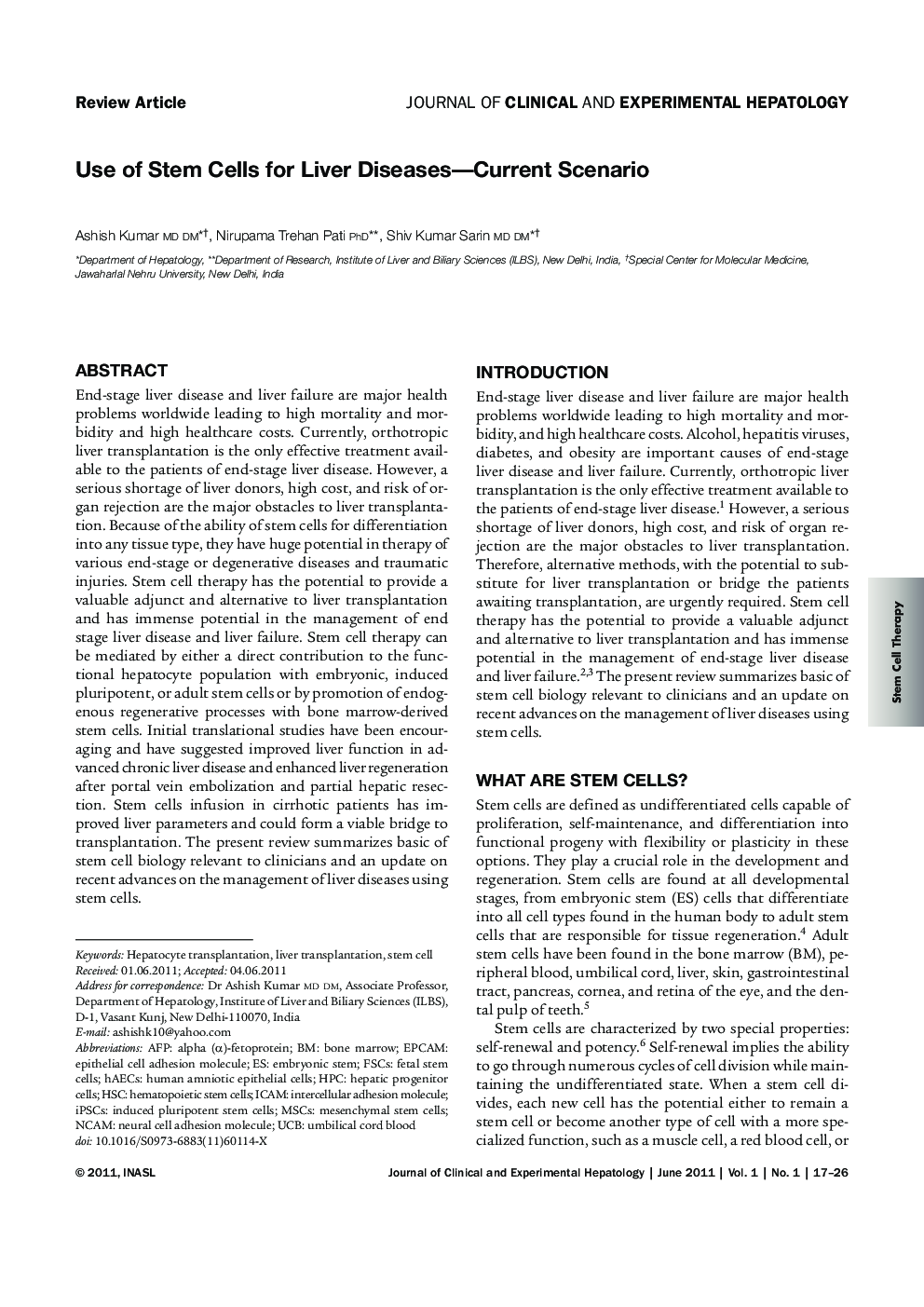| Article ID | Journal | Published Year | Pages | File Type |
|---|---|---|---|---|
| 3339264 | Journal of Clinical and Experimental Hepatology | 2011 | 10 Pages |
End-stage liver disease and liver failure are major health problems worldwide leading to high mortality and morbidity and high healthcare costs. Currently, orthotropic liver transplantation is the only effective treatment available to the patients of end-stage liver disease. However, a serious shortage of liver donors, high cost, and risk of organ rejection are the major obstacles to liver transplantation. Because of the ability of stem cells for differentiation into any tissue type, they have huge potential in therapy of various end-stage or degenerative diseases and traumatic injuries. Stem cell therapy has the potential to provide a valuable adjunct and alternative to liver transplantation and has immense potential in the management of end stage liver disease and liver failure. Stem cell therapy can be mediated by either a direct contribution to the functional hepatocyte population with embryonic, induced pluripotent, or adult stem cells or by promotion of endogenous regenerative processes with bone marrow-derived stem cells. Initial translational studies have been encouraging and have suggested improved liver function in advanced chronic liver disease and enhanced liver regeneration after portal vein embolization and partial hepatic resection. Stem cells infusion in cirrhotic patients has improved liver parameters and could form a viable bridge to transplantation. The present review summarizes basic of stem cell biology relevant to clinicians and an update on recent advances on the management of liver diseases using stem cells.
